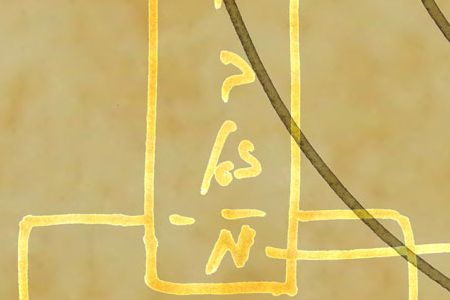Leviticus, 1:1-5:26
This Week’s Torah Portion | Mar 19 – Mar 25, 2023- 26 Adar II – 3 Nisan, 5783
In A Nutshell
The portion, VaYikra (The Lord Called), deals with rules of sacrificing and the priests serving in the tabernacle. Some offerings are optional; some are mandatory. Some of the offerings are burnt to ashes on the altar, and some remain for the priests and the giver of the offering.
The rules of offerings speak of a “burnt offering” that a person brings voluntarily from the cattle, flock, and poultry. There is also a “gift offering,” which a person brings voluntarily from the flora. Also, there is the “peace offering,” which is an offering that a person brings from the cattle, sheep, and goats. The “sin offering” is an offering brought by one who sinned by mistake. That person makes an offering to atone for the sin.

Commentary by Dr. Michael Laitman
The portion, VaYikra (The Lord Called), teaches us about the work of the offerings, which are also the main topic in the Talmud. We learn all the works from the works of the Temple.
People are nearing the purpose of creation and Dvekut (adhesion) with the Creator, to the human level, a life in a totally blissful world, and experiencing all the worlds and the sensation of nature as complete and eternal, as it was prepared for us. That nearing is called Korban (offering/sacrifice) from the word Karov (near).
We are approaching it step by step by correcting our nature. There are 613 desires in us, which we must correct one at a time, each desire with all of its parts. Our desires divide into four levels: still, vegetative, animate, and speaking. The work of the offerings teaches us how to sacrifice and correct them so they are in bestowal and love. The rule in our work is to correct our nature and achieve the state, “love your neighbor as yourself; it is a great rule in the Torah.”[1] By that, we become similar to the Creator and achieve Dvekut with Him.
The correction of the egoistic desire from receiving for myself into bestowal upon others is called an “offering” that a person offers. The offering may come from several sources. It may be from the still, as it is written, “On all your offerings you shall offer salt” (Leviticus, 2:13), or water or oil. It can also be from the vegetative or processed plants, such as the showbread. From the animate, only a certain kind is offered. The priests’ and the Levites’ daily work in the Temple is to sacrifice the flock and the cattle.
Continue reading “VaYikra (The Lord Called) Parsha – Weekly Torah Portion”
